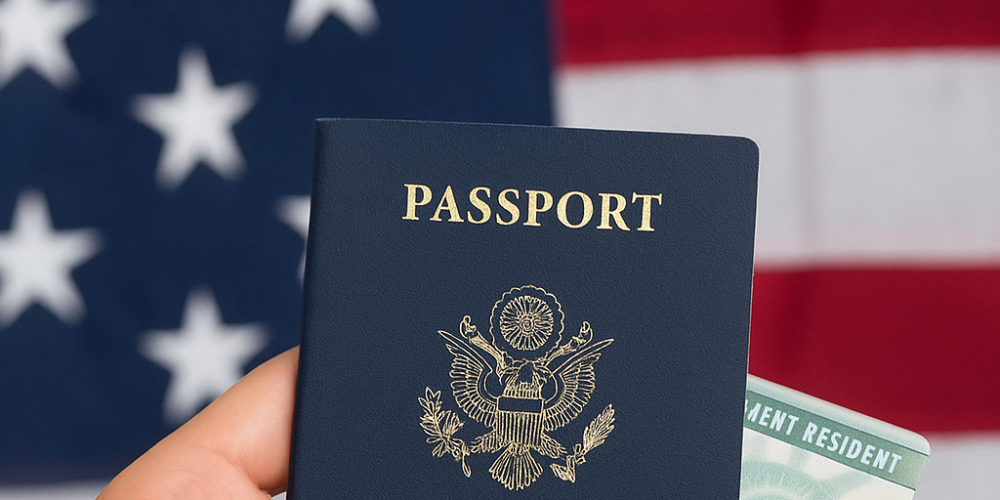New USCIS Policy Update: A Pathway to Naturalization for Immigrants with Criminal Histories

New USCIS Policy Update: A Pathway to Naturalization for Immigrants with Criminal Histories
In a major shift, U.S. Citizenship and Immigration Services (USCIS) has issued updated guidance clarifying how officers evaluate discretionary factors in naturalization and other immigration benefits. For many lawful permanent residents (green card holders), this change could open a new and more forgiving pathway to U.S. citizenship — depending on the nature of the offense, how long ago it occurred, and the applicant’s demonstrated rehabilitation.
This update, combined with Policy Alert PA-2025-16 released on August 19, 2025, reflects USCIS’s effort to balance national security priorities with fairness and rehabilitation.
Background: The Challenge of “Good Moral Character”
To qualify for naturalization, applicants must prove good moral character (GMC) during a statutory period — typically five years (or three if married to a U.S. citizen).
Until now, even old or minor convictions often blocked applicants. Officers frequently denied applications based on rigid interpretations of criminal history, without considering context, rehabilitation, or time elapsed.
Learn more about how criminal history can affect immigration eligibility on our Criminal Immigration Defense page.
What’s Changed: A Case-by-Case Discretionary Approach
The new USCIS guidance emphasizes a totality of circumstances analysis, meaning officers must weigh both positive and negative factors instead of denying solely due to past mistakes.
Key Improvements for Applicants with Criminal Records:
-
Rehabilitation and Time Passed – Officers now give weight to rehabilitation efforts, contributions to society, and the time since the offense. Applicants can strengthen their case with character references, employment history, education, or volunteer work.
-
Case-Specific Analysis – Not all crimes block naturalization. Offenses outside the statutory period or not considered crimes involving moral turpitude (CIMT) may not prevent approval if rehabilitation is documented.
-
Recognition of Expungements and Pardons – While traditionally limited in impact, expungements and pardons may now carry more weight in discretionary analysis.
Policy Alert PA-2025-16: Defining the Boundaries of Discretion
The policy manual update provides clearer instructions for immigration officers.
Positive Impacts:
-
Clean records during the statutory period and proof of rehabilitation now weigh heavily in favor of approval.
-
USCIS must weigh mitigating factors against past offenses, preventing automatic denials for older or minor issues.
Clear Red Lines:
-
Applicants linked to terrorism, antisemitic ideologies, extremist or anti-American groups face strong negative discretionary weight.
-
Even minor involvement in extremist activities may result in denial of naturalization or other benefits.
Learn more about the USCIS naturalization eligibility requirements.
Practical Implications: Who Can Benefit?
This policy shift could help immigrants who:
-
Have old or minor criminal records, especially outside the GMC period
-
Have shown clear rehabilitation and positive contributions
-
Were previously denied naturalization due to criminal history
-
Maintain strong ties to work, family, and community service
⚠️ However, applicants with serious crimes, fraud, or extremist affiliations may still be denied despite rehabilitation.
Tips for Applicants with Criminal Records Seeking Naturalization
-
Obtain Your Complete Criminal Record – Collect court records, police reports, and final dispositions.
-
Document Rehabilitation – Gather letters from employers, community leaders, clergy, or counselors, plus proof of work, study, or volunteer efforts.
-
Be Transparent – Always disclose your full criminal history. Hiding or omitting records can result in denial or deportation.
-
Work with an Immigration Attorney – Navigating discretionary analysis is complex. An experienced lawyer can highlight the strongest factors in your favor. Learn more about our green card and permanent residence services.
Conclusion: A More Just and Compassionate Approach
The recent updates from USCIS signal a more balanced and thoughtful approach to adjudicating immigration benefits, especially for those with prior mistakes who have since demonstrated personal growth and a commitment to U.S. values.
While the government continues to rightly safeguard national security, it also now recognizes that immigration adjudication must account for humanity, context, and change. For many lawful permanent residents with criminal histories, this new guidance could be the key to finally achieving their American dream.
If you have a criminal history and are unsure if you qualify for naturalization under the new guidance, our office is here to help. Contact Prizant Law today for a confidential evaluation of your case.
